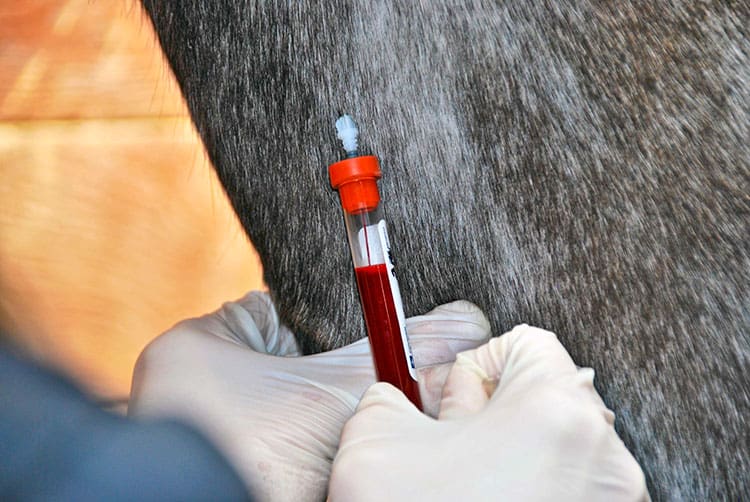Texas Horse Confirmed With EIA

Texas Animal Health Commission (TAHC) officials have confirmed a Brazoria County Quarter Horse with equine infectious anemia (EIA). The horse’s premises is under quarantine. Until TAHC requirements have been met and quarantine released, officials will work closely with the local veterinarian and the owner to enact biosecurity protocols and monitor horses that have potentially been exposed.
About EIA
Equine infectious anemia is a viral disease that attacks horses’ immune systems. The virus is transmitted through the exchange of body fluids from an infected to an uninfected animal, often by blood-feeding insects such as horseflies. It can also be transmitted through the use of blood-contaminated instruments or needles.
A Coggins test screens horses’ blood for antibodies that are indicative of the presence of the EIA virus. Most U.S. states require horses to have proof of a negative Coggins test to travel across state lines
Create a free account with TheHorse.com to view this content.
TheHorse.com is home to thousands of free articles about horse health care. In order to access some of our exclusive free content, you must be signed into TheHorse.com.
Start your free account today!
Already have an account?
and continue reading.
Written by:
Diane E. Rice
Related Articles
Stay on top of the most recent Horse Health news with















